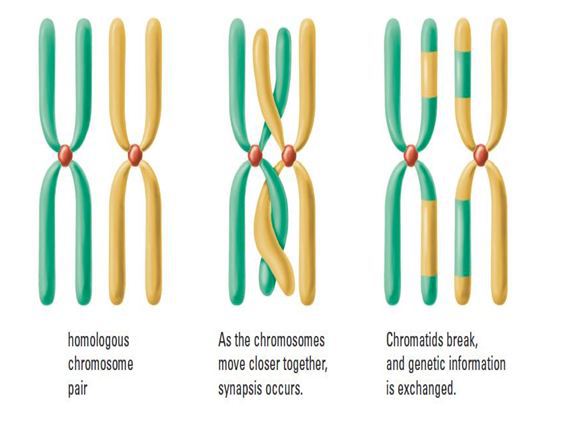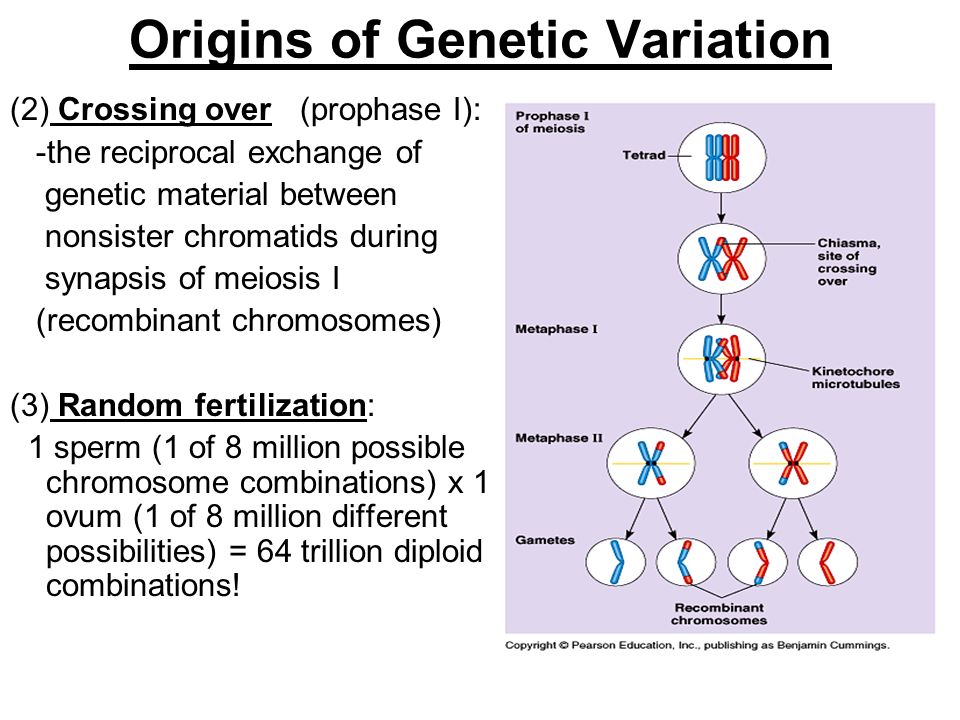How does meiosis generate genetic diversity?
1 Answer
Meiosis generates genetic diversity through a process called crossing over which allows new combinations of variations to appear in gene pool. Homozygous chromosomes come side by side and they exchange genetic material during prophase of meiosis I.

( )
)
Consider combined effects of all these to understand the impact of meiosis:
- Homologous chromosomes may carry two different alleles on same genetic loci, i.e. there could be heterozygous condition for a gene. (for example, allele for antigen A in one and allele for antigen B in another chromosome: both are for ABO blood group determination)
- There are a number of genes linearly arranged on chromosomes , hence several of them may remain in heterozygous condition. (there could be heterozygosity for ABO blood group, iris colour of eye, and sickele cell anaemia in same individual)
- Each organism has a number of chromosomes in genome, hence several pairs are undergoing crossing over during one meiosis. (in case of human, 22 autosomal pair among 23 pair of chromosomes are participating in crossing over)
-
Chiasmatal points appear randomly on homologous chromosomes, hence amount of genetic material exchanged in every case/cell could be different. (different recombinations appear after each crossing over, hence diversity increases with more number of meiotic divisions taking place in an organism)
-
In first anaphase, homologous chromosomes with already exchanged parts separate. In second anaphase, chromatid separation takes place. Separation in these two stages will see different chromosomal recombinations to appear in gametes.
Meiosis is the process of formation of gametes. Due to crossing over, there appears huge variety in genetic recombinants. Now these gametes undergo random fertilisation with another set of gametes. This further increases chance of new genetic combinations to appear in progeny.

( )
)
